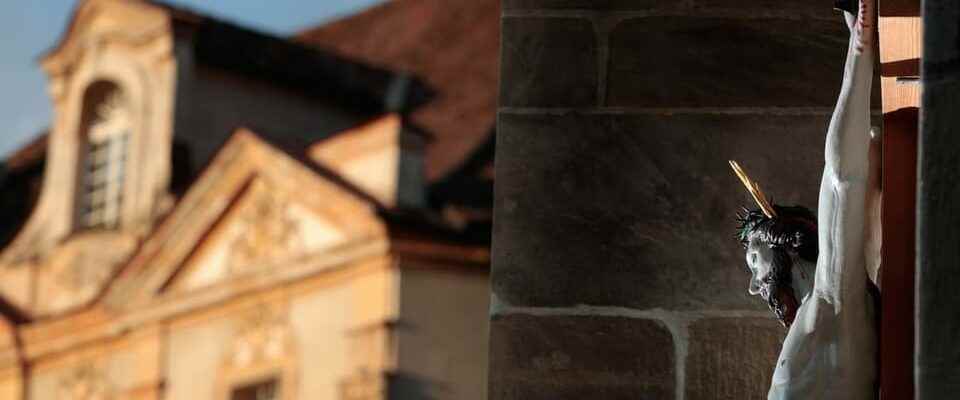contents
Bishop Bonnemain no longer allows major exorcisms to be performed in the diocese of Chur. There are other ways, he says.
In February 2020, Christoph Casetti died in Chur at the age of 76. With the help of a crucifix, holy water and a prayer book, he freed supposedly possessed people from evil spirits, demons or even the devil for years.
Since today it is clear: Christoph Casetti is provisionally the last exorcist who worked in the diocese of Chur. For religious reasons, Bishop Joseph Maria Bonnemain of Chur cannot rule out the possibility that demons or the devil are also up to mischief in Graubünden. However, he will not fill the position of exorcist that became vacant after Casetti’s death.
Normal solutions are preferred
Bonnemain is not only a theologian, he is also a doctor. It is clear to him that the way people are treated must change. “We don’t have to look for unusual causes for most problems.” We are all people with strengths and weaknesses who sometimes have a hard time in life. “For those who are confronted with difficult social, professional or health situations, there are normal solutions.” For him this means: medical, psychological or psychotherapeutic help.
This is a new perspective for the Diocese of Chur. Five years ago, the religion expert Georg Schmid described the diocese of Chur in the SRF information magazine Rundschau as an “exorcism Mecca”. There are people from Germany who do not receive an exorcism in their own dioceses and therefore come to Chur to be exorcised there. “You could say that the Diocese of Chur is the Eldorado of exorcism in the German-speaking world, a hotspot of exorcism, almost a place of pilgrimage for people looking for exorcisms,” Schmid said on television at the time.
A lot has changed at the episcopal court in Chur today. The new bishop Joseph Maria Bonnemain has received the order from Pope Francis to redeem the diocese from decades of conflict between arch-conservative and moderate Catholics. The waiver of future exorcisms is a step on the way to normalization, says Bonnemain in an interview with the regional journal Graubünden.
Legend:
The Diocese of Chur no longer wants to practice large exorcisms.
Keystone/Gian Ehrenzeller
In his 45-year career in the Catholic Church, the bishop himself was never confronted with a person who needed a major exorcism: “In most cases, people simply have mental or psychological stress. They then need support, prayers, a blessing or appropriate services. But not necessarily a great exorcism.”
Continued help for people in mental distress
The Diocese of Chur should therefore no longer be particularly attractive for people who are looking for an exorcism. But: Believers in mental distress should continue to be able to turn to priests in the diocese of Chur. These donated consolation, should refer those affected, if necessary, but also to medical professionals.
This brings the Diocese of Chur closer to the Diocese of St. Gallen. Exorcism hasn’t been an issue there for a long time. In Basel, in the third majority German-speaking diocese, two clergymen appointed by the bishop advise affected people in the so-called “liberation service”. One, the suffragan bishop emeritus Martin Gächter, says on request that he has only carried out one major exorcism in 30 years. Since the diocese of Chur has not been able to get an exorcism so quickly, the inquiries to him have increased.
